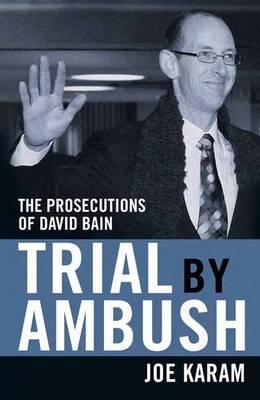 On June 20, 1994, David Bain called emergency services to report finding his entire family dead.
On June 20, 1994, David Bain called emergency services to report finding his entire family dead.
His parents Robin and Margaret, sisters Arawa and Laniet and brother Stephen had all been shot in their Dunedin home and at first, there was an outpouring of sympathy for the young man who had come home from his paper run to find that awful scene.
However, that sympathy disappeared when news broke that the grieving young man had been arrested and charged with the unthinkable: murdering those five members of his family.
A year later he had been convicted and sentenced to life in prison. That sentence was followed by 12 years of inquiries and appeals, with a 1995 appeal dismissed, the Privy Council declining to hear his appeal in 1996, a Justice Ministry inquiry from 1998 to 2000 concluding there was no miscarriage of justice and another Appeal Court hearing being dismissed in 2003.
Finally in 2007, the Privy Council determined that a miscarriage of justice had occurred, quashed the convictions and ordered a retrial and on June 5, 2009, the jury gave their verdict: not guilty.
Through the 12 years David Bain spent in jail, his time out of jail awaiting that new trial and the time since that verdict, ex-All Black Joe Karam has been by his side supporting him and helping him move on with his life.
I doubt there is anyone in New Zealand who isn’t familiar with the sorry saga of the Bain family murders and the trials that followed.
I also doubt there is anything Karam could write that would alter the view of those on both sides of the debate: strong opinions are voiced online, on talkback radio and around dinner tables every time the topic comes up.
The only people who know for sure what happened in that house were those who were there when the shots were fired. My opinion on whether David is an innocent man is not important and is probably of little interest to anyone other than me and of course we all know Karam’s opinion on David’s innocence and his belief the five deaths were the result of a murder-suicide by David’s father Robin.
While Trial By Ambush goes to great lengths to prove both of those things, in many ways I feel proving guilt or innocence isn’t as important as showing the path taken.
A court of law has already given us a “not guilty” but going through the facts presented in court, including those not allowed the first time around, highlights the shortcomings of a system that failed.
The content isn’t anything we haven’t already read or heard but it is put together in a way that should make us all sit back and take a moment to think about how our legal systems work, how they failed to work in this case and what we should do – or must do – to safeguard it in the future.
